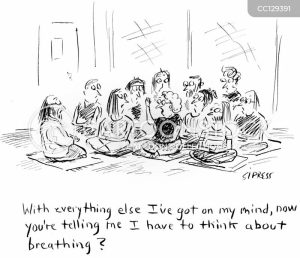Podcast: Play in new window | Download
 What is the difference between mulling something over and contemplating?
What is the difference between mulling something over and contemplating?
A lot of people asked Dr. Peter Popper what it takes to be as knowledgeable is he is. His answer is: reading. And then contemplate over what you read. And then reading more. Contemplate more.
Contemplating means to think about, to LOOK thoughtfully for a long time at something. Instead of what most people do: prejudge, or judge the thing. Or even simply just understand.
Contemplating makes you expand mentally.
You rebuild your worldview, you rebuild your view of the world when you do it rightly.
Understanding is always fitting something in the limited knowledge you have
Understanding is always fitting something in the limited knowledge you have, not expanding it, not what Life or an author meant. Near worthless.
Instead of reading and contemplating, most people mull things over in their minds… after they judged it as right or wrong.
- One is mulling things over… while the other is contemplating over what one read, what one saw.
- One leads to more of the same… the other leads to an expanded view of everything.
- Or it leads to digging your heels in. Digging yourself deeper into a ditch… while the other is like playing and climbing mountains.
- The one is guided by a certainty that you are right and others are wrong… the other leads to inner peace.
- Physiologically the one is tight cone of vision, where the eyes don’t move. While with contemplation the cone of vision is relaxed, wider, and the eyes move to follow some idea, and don’t get stuck.
- Emotionally is perceived as a threat where all you can do is dig in and resist… while contemplation is quite pleasant, like an adventure. I personally love it.
At the root of it, what it boils down to is this:
How much the thing is about you. How much it effects you.
If you think it effects you: you’ll be mulling it over. If you think it is interesting on its own right, then you’ll be able to contemplate.
I track people on my calls, and watch what they do, where they go. And how long they stay there. And what brings them out, if anything.
Ultimately people who cannot or won’t contemplate, who can only mull things over cannot get out of their own way.
What does it mean that you cannot get out of your own way?
How and why are you in your own way to begin with?
From Psychology Today:
Getting out of your own way means being with who you are, moment to moment, whether you like it or not. Whether or not it’s easy or comfortable, familiar or disturbing. And then creating from that place.
From Quora:
It means that your habits, behavior, feelings, personal problems, etc. are stopping you from being successful. You need to change these things so your life will become better.
But what exactly is in your own way?
Here it is, simply: you are taking things personally. And personally you want to be right, you want to look good, you want to avoid domination, and you want to justify, explain… so you don’t have to change anything.
You insist that you are right, that you have always been right, and what you think about yourself and about the world is true and has always been so.
You’d rather die that tell the truth that you were not right.
Or as I see it: you are more concerned why something doesn’t work, than with asking the question: how could it work? with what is the way out.
In the Starting Point Measurements this is reflected in the about-me score, and the rigidity score.
From your current point of view, you cannot be happy. You are not even willing to look at alternative ideas, because thinking them would make you wrong retrospectively.
And the result: you are walking around in your life dead… Mentally, emotionally, spiritually. Dead man walking. No aliveness, no joy, nobody home.
In the Inner Path exercises I am working on,
- you’ll practice loosening up your rigidity. And
- allowing your attention, physically and emotionally, to go to places they are not allowed to go now. To
- feel feelings you deem bad so you can feel good emotions. The whole range of emotions, that are needed to feel alive. To
- experience that in fact you are leading your attention to places, and if you can do it in an exercise, you can do it in life.
You’ll see that with a little practice you can go from complete deadwood to intelligent… Which in life you would not risk. And once you get that it is so, you’ll be able to bring that knowledge to all of life.
The exercises are simple, and not time-consuming.
They are from a book by a famed Hungarian psychologist/psychiatrist, Dr. Peter Popper. He wrote 87 books… and this is just one of them.
But like anything, repetition is king.
My students with high rigidity, high about-me score, occasionally get to seven repetitions in whatever exercise I ask them to do.
And the result: nothing changes, because change doesn’t happen, doesn’t become rooted until repetition 70 and over.
So my rigid, high about-me scoring students have one thing common: they don’t learn to do anything well… and nothing changes for them.
The average rigidity of opinion is rising on the planet, together with the lowering of vibration and intelligence.
With that people’s experience of life is getting worse.
Bitterness, loneliness, faithlessness.
How do you feel that you consider your opinion to be the truth? You feel a tightening, physically.
And that tightening is what I want to help you to get rid of.
The tightening means that you took your opinion personally.
 The exercises will take your opinion out of the personal paradigm and make it just one item in the big world… a thing that you can go around… Now your opinion is like The Great Wall of China that you can’t go around.
The exercises will take your opinion out of the personal paradigm and make it just one item in the big world… a thing that you can go around… Now your opinion is like The Great Wall of China that you can’t go around.
You are unhappy because of your opinions.
Once they become malleable, like play dough, you’ll start experiencing joy and freedom to be.
Dr. Peter Popper wrote a book some 40 years ago, called The Book of Inner Paths. In Hungarian.
Will, one of my students sent the original Hungarian through google translate. Thank you Will. I don’t even know how to use google translate…
The resulting translation is quite good. Not perfect, there are weird words that don’t quite mean what Dr. Popper meant… but there are not many of those.
You can get the pdf and the audios, both in English.
And if you want to support me to turn that book into an exercise book, a self-development book that can take you from rigid, it is all about me walking dead to supple, happy, productive person, you can get it for free when it is ready.
 This is how Dr. Popper expresses the ideal we can strive for:
This is how Dr. Popper expresses the ideal we can strive for:
If we were to draw a perfectly balanced ideal image of man, what can we say about him? Maybe just this:
Able to perform according to his talents and abilities, be productive in his studies, work, and profession.
He is able to enjoy himself in the world; able to enjoy life; able to enjoy the opportunities offered by life: eating, work, rest, love, the culture.
He is capable of doing what he does without disrupting or harming or destroying other people’s lives; all this should not be at the expense of others; so he is capable of social integration. Able to fit in.
If you are already that or fancy yourself being that, I am happy for you.
 But very few people can say about themselves that this is how they live.
But very few people can say about themselves that this is how they live.
The exercises in the book will help you in removing the rigid inner stops, and equip you with habits that can lead you to that ideal kind of life, that ideal way of living.
And no one can ask more than that from life. Really.
- We all would like to live like this… but for some reason we can’t…
- We don’t perform according to our talents.
- Then we are not productive.
- We are not able to enjoy ourselves in the world.
- And somehow we are always in conflict with others…
So yeah, we all would like to live like that.
 And the exercises help… Can they do all you need? I don’t know. But they help.
And the exercises help… Can they do all you need? I don’t know. But they help.
The book will be more user friendly if and when it is re-organized. I plan to put each exercise on its own page, so you can take notes, and not be distracted by what was before and what comes after.
In the shopping cart I give you an opportunity to give me a donation to help with the cost of doing this work.
If you donate, the book, when it is ready, will be yours, for free. And you can get the 3-hour audio and the rough translation of the original book for a buck.
Some 20 years ago I had a life-altering experience with a similar book… the 90-day wealth conditioning by Peak Potentials.
I did all the work for 30 days, and increased my net worth by 30K… Thereafter I did one of the exercises and it completely changed my self-view from worthless to amazing.
So obviously I believe in doing exercises to cause inner change. Inner change causes outer change almost imperceptibly.
My favorite demonstration of that I tell in this article
And, or course my all time favorite, a program I did for 42 months! is the 67 steps. I listened and I contemplated. Then I listened again and I contemplated again. Life altering.

didn’t receive it. Sorry. And thank you for your generosity, successful or not.
Sophie: I sent you a donation of 21 dollars in the article of of today the guy talking
in another language, but placing the photo the payment screen disappear and
I did’t find it, would you confirm either way if you received it?
Thanks in advance.